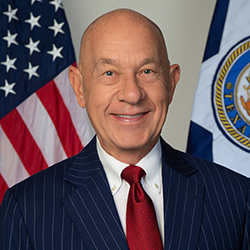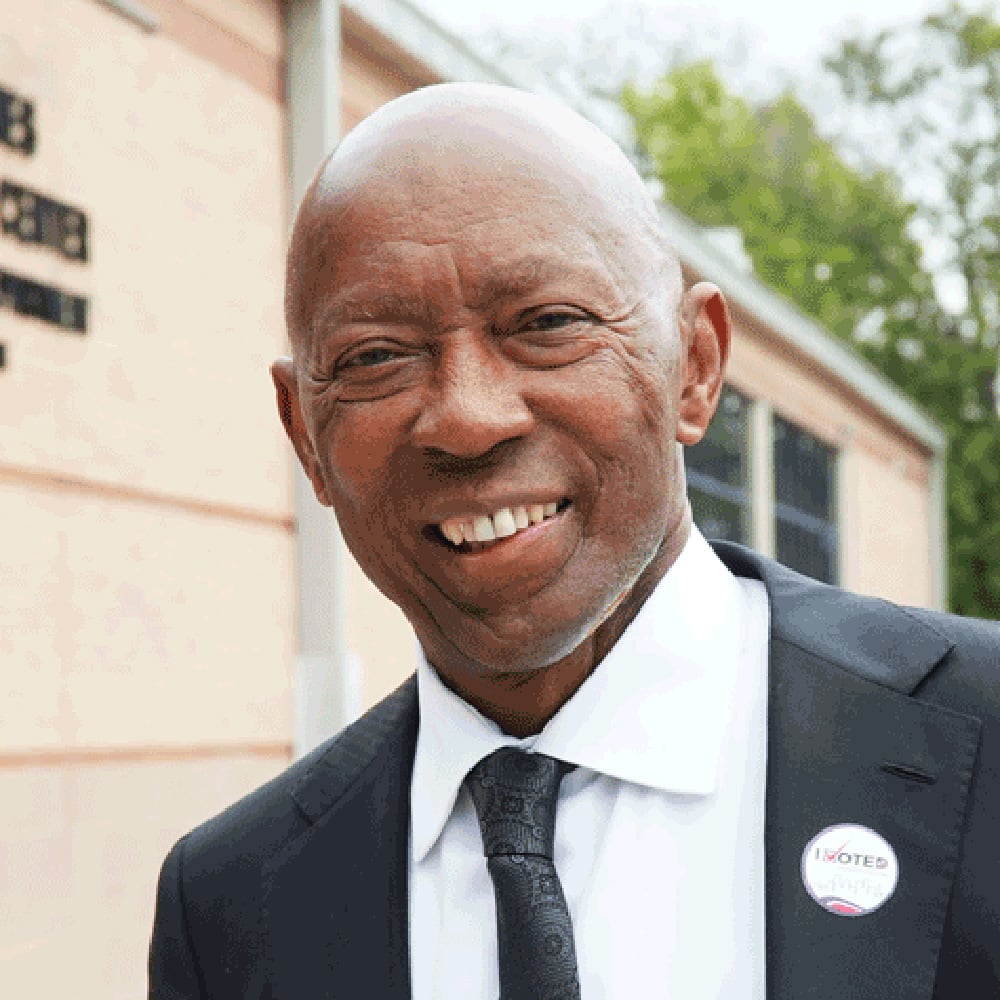And still going strong.
The measles outbreak in West Texas has soared to 198 cases, the Texas Department of State Health Services reported Friday. In New Mexico, 30 cases have been reported in Lea County, which borders Gaines County, of as Friday.
Twenty-three people — mostly unvaccinated children — have been hospitalized in West Texas.
A 6-year-old in Texas died last week, and on Wednesday, Lea County health officials reported a suspected measles death in an adult.
The reported number of cases is likely a large undercount because many people aren’t getting tested, said Katherine Wells, director of public health at the health department in Lubbock, Texas.
Even as hospitals in the area offer free testing and vaccination, the growing outbreak shows the challenge health workers face in stopping the spread of one of the most contagious viruses known to humans.
A health food store in Seminole has become a gathering place for families with visibly sick children seeking medical advice. They’re often given cod liver oil, a supplement rich in vitamin A that’s been touted by Robert F. Kennedy Jr., head of the Department of Health and Human Services.
While studies have shown that people with a vitamin A deficiency have worse outcomes from measles and its complications, “vitamin A in and of itself does not treat measles,” said Dr. Alexandra Yonts, an infectious disease specialist at Children’s National Hospital in Washington, D.C.
In the U.S., “most of us get enough vitamin A,” Yonts said. “Therefore taking any additional vitamin A will unlikely give you any benefits against complications of measles.”
“It absolutely cannot prevent you from getting measles,” she added.
The majority of the measles cases are centered in Gaines County, where Seminole is, but some have popped up in neighboring counties including Lubbock and Terry counties, the Texas Health Department said.
Yeah, vitamin A. You can see the dollar signs light up in every grifty supplement seller’s eyes on the planet. Like, eat some carrots or spinach or something if you’re worried about vitamin A. Here’s what you need to know about Vitamin A and measles.
“Mentions of cod liver oil and vitamins [are] just distracting people away from what the single message should be, which is to increase the vaccination rate,” said Dr. Amesh Adalja, an infectious disease physician and senior scholar with the Johns Hopkins Center for Health Security.
While vitamin A can play a role in preventing severe disease, discussion of vitamins “doesn’t replace the fact that measles is a preventable disease. And really, the way to deal with a measles outbreak is to vaccinate people against measles,” says Dr. Adam Ratner, a member of the infectious disease committee of the American Academy of Pediatrics.
[…]
When it comes to vitamin A, studies conducted decades ago in low- and middle-income countries found that the vitamin can reduce the risk of severe disease and death in children who are malnourished and have vitamin deficiencies, says Adalja.
There’s also evidence that, even in the absence of a preexisting deficiency, measles seems to deplete the body’s stores of vitamin A. Both the World Health Organization and the American Academy of Pediatrics recommend giving two doses of vitamin A to children who have the disease, especially if they are so sick they are hospitalized.
But Ratner stresses that vitamin A does not prevent measles.
A false idea circulating online is that giving children high doses over long periods of time can prevent measles, says Ratner. He says that’s not only wrong but can be quite dangerous.
“Vitamin A can accumulate in the body,” he says. “It can be toxic to the liver. It can have effects that you don’t want for your child,” like liver damage, fatigue, hair loss and headaches. Ratner works as a pediatric infectious disease specialist in New York City. He says that similar misinformation about vitamin A made the rounds during the city’s measles outbreak in 2019.
I wonder sometimes how long it will take us to generally unlearn all of the bullshit and misinformation that various malevolent actors have been force-feeding us. I doubt I’ll live long enough to see it happen.
With regard to that second reported death:
A possible second measles death has been recorded in the U.S. this year after a New Mexico resident tested positive for the virus following their death.
The New Mexico Department of Health (NMDOH) said on Thursday the individual was unvaccinated and that the official cause of death is still under investigation.
The first measles death this year was reported in an unvaccinated school-aged child linked to an outbreak in western Texas.
[…]
Health officials suspect there may be a connection between the Texas and New Mexico cases, but a link has not yet been confirmed.
That was a story from Thursday, before the Friday data came out. It may end up the case that this person died of something else, but regardless they had measles at the time of their death.
It’s a wild time to be a doctor in that part of the world.
Dr. Leila Myrick had only read about measles in medical school before a girl with the telltale rash turned up in her West Texas emergency room in late January.
The child, who had no immunity to the highly contagious disease but had an underlying respiratory condition, would become one of the first known cases in Gaines County, the epicenter of the nation’s largest outbreak, in six years. Nearly 160 known people have been infected since, including 22 people who have been hospitalized. And last week, a school-aged child with no underlying conditions died, marking the first measles death in a decade. The outbreak spread across rural counties and is now suspected to have caused an outbreak nearby in New Mexico.
Myrick, a 38-year-old family medicine and obstetrics physician in the tiny town of Seminole, looked back to medical texts to learn more about the disease, once thought to be nearing eradication in the U.S. Now, she’s treated nearly a dozen cases and counting. In just over a month’s time, the rural doctor has become one of the nation’s only doctors with firsthand experience of how infectious, and serious, measles is. And she is an unwitting expert in a disease she never thought she’d treat.
“Now we’re literally seeing when you don’t vaccinate, this is what happens,” Myrick said.
[…]
A fever, cough or a rash can be a variety of different issues. But doctors can’t afford to miss a measles diagnosis, said Dr. James Cutrell, an associate professor at University of Texas Southwestern Medical Center, in Dallas.
Given how contagious measles is, he said, the importance of identifying it early in order to isolate the patient, test them and confirm if it’s measles is crucial to stopping the spread. Another concern is that symptoms develop typically a week or two after exposure. People can spread measles even when they’re not showing symptoms.
Myrick saw this firsthand. In late January, the infected girl arrived in the emergency room with an underlying respiratory condition that put her at increased risk from the potentially deadly virus. After an emergency physician diagnosed her with measles, Myrick went to her medical texts to look up the disease to treat the girl.
She recalled the blotchy, red spots covering the girl’s body from head to toe. The child was placed in isolation, with hospital staff in full gowns and masks. Through the course of the child’s stay, her rash changed to smaller red dots. Myrick thought she would be the only case.
“We took every precaution we could to try to contain it and keep it isolated to just that one patient,” she said. “And it didn’t work. It didn’t work at all.”
At first, the outbreak centered in the region’s Mennonite community, which had been under-vaccinated with entire families infected. Myrick and staff have now seen cases among Latino infants too young to be vaccinated but facing serious illness. Pregnant women, who are at particular risk of miscarriage or premature birth from infection, are also at risk.
She expects more cases in the community. Many families call describing measles symptoms, but they won’t get tested, and they won’t get treatment unless infections worsen.
She has managed to convince some people to get vaxxed. Others are doing the same.
Last Saturday, Zach Holbrooks walked into a mobile measles screening and vaccine clinic he had helped set up.
As the executive director of the South Plains Public Health District, which includes Gaines County, he dropped by to check on how many shots the crew had given out so far that day.
“Has it been busy today?” Holbrooks asked the two staffers in what’s normally a livestock show barn on the outskirts of downtown Seminole. “Not so far. We’ve only given one,” they replied.
Holbrooks works and lives in this town, the county seat, which in the last few weeks became the epicenter of the largest measles outbreak in three decades.
[…]
Holbrooks has been busy since the outbreak started in late January. He’s been setting up mobile testing and vaccination sites; he said this remote part of West Texas has a large immigrant population, many whose immunization records are unknown, so he’s been circulating flyers with measles information in different languages.
“We have a mix of people out here, a large German speaking population, Spanish speaking population,” which he said makes getting residents the right information about disease control even more complicated.
Authorities still don’t know how the measles got to Seminole, but John Belcher, the town’s former mayor, said he understands why it’s spreading beyond the city limits.
Folks who live out here basically have to drive everywhere, he said. They hop in the car or truck and drive miles to get groceries, go to doctor’s appointments, attend church and to get to work.
“I’d say within 200 miles, maybe even farther, if there’s a metal building out there, it came from products manufactured in Gaines County,” Belcher said. “And the building was probably put together by companies from Gaines County.”
[…]
The state’s health officials have said there’s plenty of vaccine for everyone who needs it, and Holbrooks said he doesn’t think it’s a lack of access to the vaccine that’s spreading measles out here.
At last count, 214 people in Gaines County have been vaccinated for measles since the outbreak. Holbrooks believes that number is not higher because some people fear debunked ideas about its safety.
“I just think there’s some vaccine hesitancy, even more so since COVID,” Holbrooks said.
Yeah, can’t imagine why. But for those of us who haven’t been infected by anti-vaxx stupidity and are worried about our own state of immunity, there’s a simple answer.
Houston Methodist patients have been asking Dr. Josh Septimus and his colleagues the same question, several times a day.
How do you know whether you got the measles, mumps and rubella vaccine as a child?
Unfortunately, if you don’t know the answer, it can be tricky to find out, said Septimus, lead primary care doctor at Houston Methodist. Pediatricians keep records of the vaccines they give to children, but they typically save them for only a few years after a patient becomes an adult. Texas is among the states that maintain immunization records, but it doesn’t include records for anyone vaccinated in another state.
So as the state’s largest measles outbreak in more than 30 years continues to grow, Septimus and other doctors are offering simple advice to anyone who is unsure: Just get another shot.
“The records are extraordinarily difficult to come by,” Septimus said. “With all the effort that it would take to find that information, if you’re not sure, it’s easier to just get the vaccine.”
For most people, there’s no harm in getting the MMR vaccine if they can’t remember getting one as a child, or if they’re concerned enough to feel like they need a booster, Septimus said. There are some exceptions, such as people who are pregnant or immunocompromised.
Get the shot, if you have any doubt. Call your doctor or find a public health drive. Don’t become a statistic. The Observer has more.

















